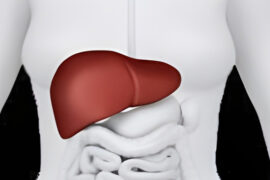Intermittent fasting, a widely adopted strategy for weight loss by restricting food consumption to specific time windows, has recently faced scrutiny due to findings linking it to an increased risk of death from heart disease. A study presented at a medical meeting in Chicago revealed a surprising association, suggesting that limiting daily eating periods to just eight hours may elevate the risk of death from heart disease by 91%.
However, the study’s conclusions have prompted skepticism among some medical professionals. The American Heart Association (AHA) released only an abstract of the study, leaving many scientists to speculate about the specific details of its protocol and methodology. While the AHA asserts that the study underwent rigorous evaluation by experts before its release, concerns remain about the validity and reliability of the findings.
Critics of the study point out potential confounding factors, such as differences in underlying heart health between fasting patients and the comparison group. The comparison group, who consumed food over a daily period of 12 to 16 hours, may have had distinct characteristics that could have skewed the study’s results.
“Time-restricted eating is popular as a means of reducing calorie intake,” Keith Frayn, emeritus professor of human metabolism at the University of Oxford, stated in a statement to the UK Science Media Center. “This work is very important in showing that we need long-term studies on the effects of this practice. But this abstract leaves many questions unanswered.”
The study, led by Victor Zhong from the Shanghai Jiao Tong University School of Medicine, utilized data from approximately 20,000 adults who participated in the US Centers for Disease Control and Prevention’s National Health and Nutrition Examination Survey. The researchers examined responses to questionnaires and correlated them with death data spanning from 2003 to 2019.
Since the study relied partially on self-reported dietary information, collected through forms requiring participants to recall their food intake over two days, there is a possibility of inaccuracies in the data. The study cohort comprised approximately equal numbers of men and women, with an average age of 48 years.
The duration for which participants practiced intermittent fasting was not explicitly stated in the study. However, the researchers assumed that participants continued with the fasting regimen, as stated by Zhong. This assumption implies that the study likely did not account for any potential changes in dietary habits or fasting patterns over time among the participants.
The patients practicing intermittent fasting were more likely to be younger men with a higher body mass index (BMI) and experienced food insecurity. Additionally, they had a lower prevalence of hypertension, diabetes, and cardiovascular disease based on self-reports. “We controlled for all these variables in the analysis, but the positive association between 8-h time-restricted eating and cardiovascular mortality remained,” Zhong stated.
The abstract presenting the findings of the study was showcased at the American Heart Association’s (AHA) Lifestyle Scientific Sessions meeting held in Chicago.
Disclaimer:
The information contained in this article is for educational and informational purposes only and is not intended as a health advice. We would ask you to consult a qualified professional or medical expert to gain additional knowledge before you choose to consume any product or perform any exercise.








